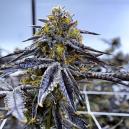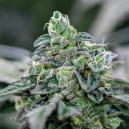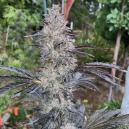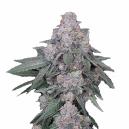Can Cannabis Help In The Treatment Of Leukemia?
Published :
Sep 13, 2018
Categories :
Medical cannabis

Leukemia is a cancer of the white blood cells, cells that the body relies on for immune defence. Both THC and CBD have been shown to kill leukemia cells in vitro.
Cannabis continues to surprise us all with its medical efficacy. As more and more studies document its broad scope of potential, perhaps one of the most significant areas that cannabis has been found to be effective in is the treatment of cancer. In vivo and in vitro studies have seen certain cannabinoids kill various types of cancer cells. One type of cancer that cannabis is showing promise for is leukemia.
WHAT IS LEUKEMIA?
Leukemia is defined as a cancer of the blood cells. We all learned about different types of blood cells in biology class. Red bloods cells are responsible for transporting oxygen and nutrients to tissues of the body via the bloodstream, whereas white blood cells contribute to the immune system and defence against infections. Leukemia primarily affects white blood cells.
White blood cells, also known as leukocytes, only make up around 1% of the blood, yet play a fundamental role nonetheless. Under normal conditions, white blood cells carry out immune defence roles such as ingesting and destroying pathogens and producing antibodies and antitoxins to tackle pathogens and neutralise their toxins.
White blood cells are made within the bone marrow and stored within lymphatic tissues and the blood. There are numerous types of white blood cells. Monocytes have a longer lifespan than most and help to defend against bacteria. Lymphocytes create antibodies that protect against invaders such as bacteria and viruses. Neutrophils are the most common form of white blood cell, ingesting invading bacteria and fungi. Basophils secrete chemicals that contribute to the body’s immune defences. Finally, eosinophils attack and kill parasites and cancer cells.
In cases of leukemia, white blood cells don’t behave normally and begin to lose their agency. Affected cells can start to impact major organ function when their numbers reach a certain point. They also begin to divide far too quickly, which causes them to overcrowd.
CAUSES OF LEUKEMIA
Leukemia can develop either rapidly (acute) or fairly slowly (chronic). There are various forms of the disease, including acute myelogenous leukemia, acute lymphocytic leukemia, chronic myelogenous leukemia, and chronic lymphocytic leukemia. Risk factors of developing the disease include a family history of leukemia, smoking, genetic disorders, blood disorders, radiation exposure, and chemicals such as benzene. The exact cause of leukemia is still unknown. It’s been found that people with the condition have certain abnormal chromosomes, but these don’t cause the condition.
Symptoms of leukemia include excessive sweating, fatigue and weakness, bone pain, swollen lymph nodes, bleeding easily, fever, and frequent infections.
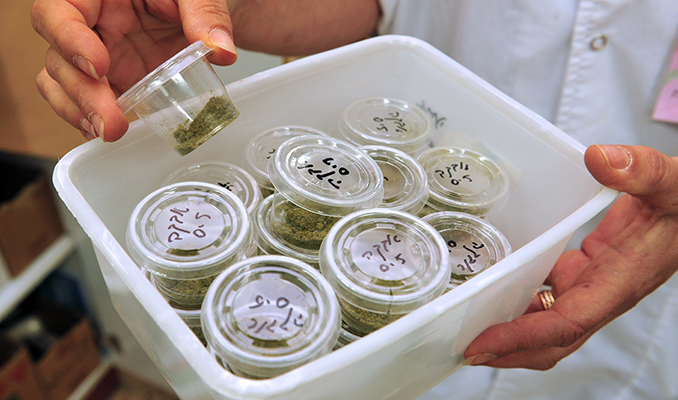
CONVENTIONAL TREATMENT
When it comes to acute myeloid leukemia, around 80% of patients younger than age 60 go into remission after their first round of chemo. However, the condition causes an estimated 10,000 deaths annually in the United States alone.
Aside from chemotherapy, other conventional treatments for leukemia include radiation therapy, stem cell transplantation, biological and immunotherapy, and targeted therapy.
CANNABIS AS A POTENTIAL FUTURE TREATMENT
Cannabinoids are a class of chemicals found within the cannabis plant, the most famous of which are CBD and the psychoactive compound THC. Over 100 cannabinoids have been identified so far, with many of them demonstrating medicinal potential.
In research settings, cannabinoids have been shown to be effective against numerous types of cancer. THC was shown to kill and damage liver cancer cells, whereas CBD displays promise against breast cancer cells, whilst sparing healthy tissue.
Early laboratory research asserts that some cannabinoids have the ability to kill leukemia cells, and that this function may be more effective when used in conjunction with chemotherapy. Researchers from the University of London published a paper within the Journal of Oncology that documents a study testing various combinations of cannabinoids and chemotherapy on leukemia cell lines.
The researchers found that THC and CBD, when used individually, were capable of killing leukemia cells. However, when used in conjunction, the cancer killing potency of each compound was amplified. Researchers also discovered that a dose of chemotherapy followed by administration of cannabinoids improved the outcomes against leukemia cells.
As well as helping to target leukemia at its core, cannabinoids can also help to manage the side effects of chemotherapy such as nausea, vomiting, and appetite loss. Like almost all subjects concerning cannabis and disease treatment, further research is necessary to unveil the full scope of cannabis’ potential in treating leukemia and other cancers. Although we are still in the preliminary stages, cannabinoids do present some exciting functions that could change the way we treat cancer in the future.















